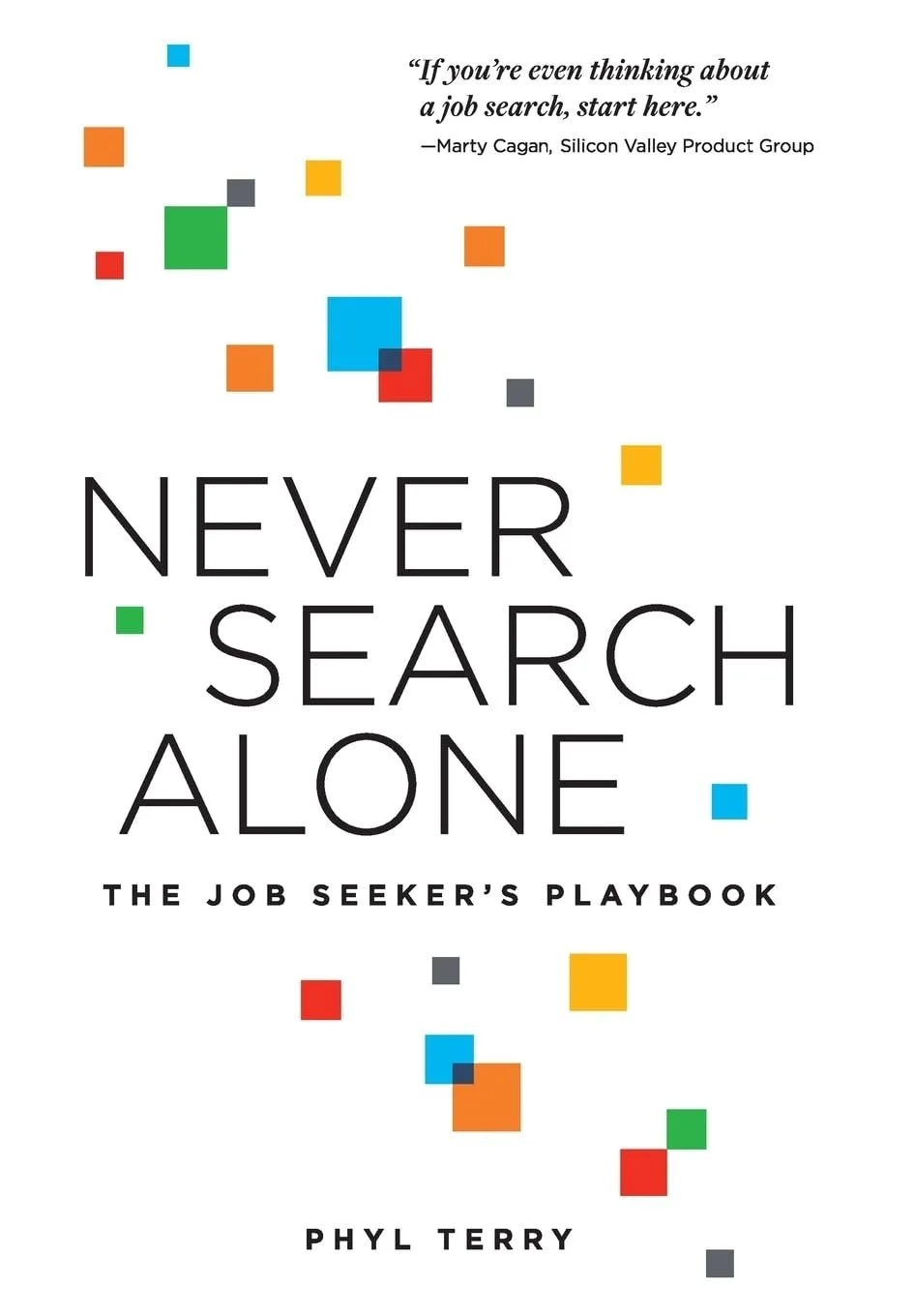Negotiation Mind-Tricks to Play on Yourself
Negotiating is nauseating. I hate it. But I don’t seem like I hate it, because I psych myself up (and out). Here are all the things I force myself to remember before any negotiation.
Before
It never gets really easy
Negotiating is like buying a house; in many ways you are always ‘doing it for the first time’ even if you’ve actually done it before. Everything changes every time, so have patience with your own nerves.
The basics (you already know these)
Of course you have to industry standard fees and rates (contracting or consulting) or salary ranges (full time jobs)
Know your own value propositions and differentiators
Be armed with your own ‘deal breakers’ when it comes to the negotiation outcome.
Practical stuff to help you with the basics
The basics aren’t easy.
I’m not an expert on finding current standard rates and salaries, but there are lots of resources out there for that. If you are negotiating for a full time role, you need to prep for the ‘what are your salary expectations’ question. If you are setting up consulting fees, you have to do research on the market.
Knowing your own value propositions and differentiators and deal breakers is easier said than done. For these critically important confidence boosters, I think you need a squad of people to help you. And the best way to get a squad is to join a Job Search Council, which is completely free.
Find people to talk money with
If you already have colleagues you can talk to about your job search, that’s great. Talking about money is hard even with long time friend-leagues. Have a conversation about talking-about-money before you talk about money.
Tip: have a “I’m having a moment” agreement: “I love that you are talking about getting that much salary. I’m just having a moment because that makes me think I should be making more money / getting more offers / etc. But I know that after we talk about you, we can talk about me.” Just expressing this to each other can keep things moving and comfortable.
Rethink ‘the elevator pitch’
No one likes a light-speed resume or list of ‘cool things I’ve done’
Craft and practice saying your superpowers: “I’m the person you want when you have (problem Z) and want (result Y).” You being modest helps no one.
Get ‘user centered.’ It’s not about what you’ve already done. It’s about what you can do for them, the person thinking about hiring you. What are their problems?
Create a two-paragraph email that’s easy for people to forward. What are you looking for? What have you accomplished/what problems have you solves? What are your superpowers?
Rethink your reaction to job descriptions
Most job descriptions are ‘thrown together’ by people who have a problem they need solved, not necessary people who know how to solve that problem.
Read my article How to Copy-and-Paste Yourself into Your Dream Job
Rethink “maybe I’m not good enough”
If the job description is mostly doable, then whatever’s missing can either be addressed (no you don’t need a UX designer AND coder) or learned.
Remember the asshats you've worked with are going for the same jobs.
Think of yourself as a product. Are you user-friendly? Are you marketing yourself the right way?
Craft a candidate-market fit statement. This is part of Phyl Terry’s Never Search Alone: The Job Seeker’s Playbook and the job search council process.
Say it all out loud, over and over.
Knowing your value and all the answers to everything above is one thing. Saying it out loud is another. Find someone to listen to you saying everything out loud, over and over, until you don’t hesitate. Then do it again. Think of this as muscle memory for confidence.
Don’t assume they know what they are doing.
“Merely being the victim of a particular problem does not automatically bestow on one the power to see the solution”
If you have experience, and know you know what you are doing, go into discussions about the job or project goals and responsibilities as if they were asking you ‘how would you structure this job to get the results we want?’ Give yourself permission to say “I’d like to share how I’d get to the results you want.”
Remember you know what you are doing. If they don’t react well to conversations about goals and process to get the results they want, they won’t good to work with or for.
Activate your interview process: Create Job Mission and OKRs
Translate the job or project description into your own document that specifies the reason the project or position exists, how they’ll know whoever they hire was successful, and exactly what the objectives and key results are (in other words, what numbers need to change by how much in what time period).
Sharing this document will either help you land the job or realize it’s not the right position for you. Lots more on this in Never Search Alone.
The actual negotiation
Get amped up using guilt on yourself
This doesn’t work for everyone but it’s good to keep in mind.If you take the wrong title and salary, you are not just screwing yourself. You are also screwing the women coming up behind you. Don’t take the next generation's salaries and titles.
You only have to be brave for 10 seconds.
We get amped up for negotiations as if it’s a marathon and we’re going to be super uncomfortable for hours. Not true. It’s seconds. Once you say what you want, everything becomes their job, not yours.
They’re not going to get mad.
This reminder is especially important for women. The recruiter isn’t going to get mad at you—if they do, then run. If you ask for something higher than they are offering, you still have opportunities to meet them in the middle later.
Ask for a range that straddles the high end of their range.
If you have to give a range, you need to know their range first.
Rule of thumb: ask for your own range that straddles theirs:
Example: if their range is $130-$150, you can respond “I’ve been considering positions in the $145 - $155 range.”
Ask for things that will make you happy and therefore successful in the role
Phyl Terry talks about this a lot in Never Search Alone. Being successful in a job, and therefore happy, bring success in salary and growth as well. When you are negotiating, you should negotiate beyond salary:
Resources
Budget
Support
Titles matter, especially for women
Not asking for or getting the right title is the #1 regret of the women in tech I work with. If you don’t have the right title, you can’t get your work done, so you won’t be happy or successful. Here’s how to respond to the classic “titles don’t matter here”: “well, if that’s the case, then why not give me the title I’m requesting?”
Come up with a very short phrase(s) you can repeat.
These can be very helpful. Any time someone tries to argue or push back, you can simply repeat your statement.
“I’m considering roles in the $145 - $155K range.”
“My intro package for all new clients is $X.”
“It’s just time for me to move on.”
Say it and then STFU.
This is the “be brave for 10 seconds” part.
“Men talk themselves into jobs. Women talk themselves out of jobs. ”
Your job is not to say a number and then argue for it. Your job is to say a number and then STOP TALKING.
The moment the number is out of your mouth, it becomes their job to respond.
Know what to say when it is your turn to talk
Tech-mageddon edition:
Things are different when there are thousands of people on the market. Note that the days of several rounds of back-and-forth negotiation are over (temporarily, I hope). Evan Feldman says that you get one shot: the offer, your response, and then their revised offer.
In a better market:
“Please look into it and get back to me.”
“Unfortunately, I’m unable to…” Unfortunately is a great word.
Never accept anything within 24 hours
Note that this may not be as helpful during the tech recession and incredibly competitive job market. But the point stands: even if you like the offer, ask for a few hours (preferably 24 hours) to think about it and get back to them. This will give you time to confer with your ‘squad’ or job search council.
Handling rejection
It’s hard. It just is.
More stuff to read and do
Get this book. My favorite quote:
”The purpose of the first conversation is to get the second conversation.”
I’m a devoted volunteer supporting the massive free community and free resources of Never Search Alone.
Evan Feldman is a recruiter and all-around awesome person. He did a great “Recruiter Rapid Fire” interview with me. He offers free (!) 30 minute resume and linkedin reviews. Co-op.FYI




